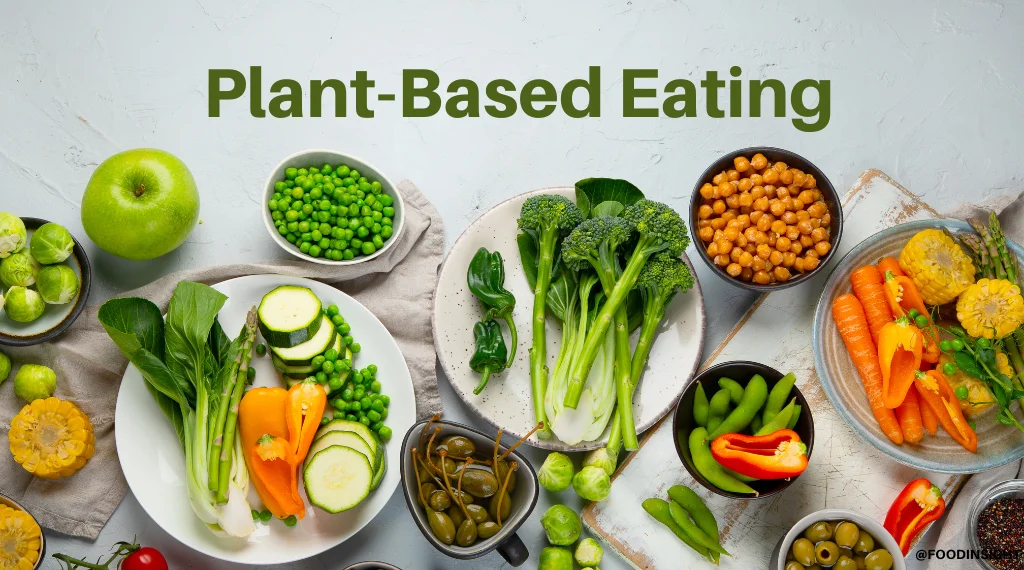Are Veggies Really Worth It? Exploring the Future of Meat-Free Eating in America

Over the past few years, Veggies have moved from niche to mainstream in the U.S. More and more people are swapping out their traditional meat-based meals for plant-powered alternatives. But with so much buzz around plant-based eating, it’s natural to wonder: Are these diets truly the future of food in America? Let’s explore why plant-based diets are gaining popularity and what they could mean for the future of food in the U.S.
What Is a Plant-Based Diet?
At its core, a Veggies diet focuses on foods made from plants, such as fruits, vegetables, whole grains, nuts, seeds, and legumes. While some people adopt plant-based diets for ethical reasons—such as animal welfare—others do so for health benefits or environmental concerns. Unlike veganism, which avoids all animal products, plant-based eating can include small amounts of animal-derived foods, though the focus remains on plant sources.
Why Are People Turning to Plant-Based Diets?
There are several reasons behind the rising popularity of plant-based diets across America:
- Health Benefits: Research has shown that plant-based diets can reduce the risk of chronic diseases like heart disease, diabetes, and high blood pressure. They’re also linked to weight loss, improved digestion, and better energy levels. For many, the potential health improvements make switching to plant-based eating a no-brainer.
- Environmental Impact: Meat production is resource-intensive, requiring large amounts of water, land, and energy. Plant-based diets, on the other hand, are more sustainable, with a smaller carbon footprint. As concerns about climate change and environmental damage grow, more people are choosing plant-based meals to reduce their impact on the planet.
- Animal Welfare: Many individuals choose plant-based diets to align with their ethical beliefs. Factory farming practices raise serious concernsabout animal treatment, prompting people to adopt plant-based alternatives as a way to avoid supporting industries that harm animals.
- Tasty Options: Once upon a time, plant-based meals were seen as bland or boring. But with the rise of innovative plant-based products like Beyond Meat and Impossible Foods, it’s easier than ever to enjoy plant-based versions of burgers, sausages, and other familiar comfort foods. These tasty alternatives are making it easier for people to transition without feeling like they’re missing out.
Is Plant-Based Eating the Future?
It’s clear that Veggies diets are on the rise, but are they truly the future of food in America? The evidence suggests they might be.
Food Industry Shift: Major food companies are taking notice of the plant-based trend. Fast-food giants like McDonald’s and Taco Bell are rolling out plant-based options to attract customers. Even supermarket chains are stocking more plant-based products to cater to demand. This shift signals that plant-based eating is becoming more than just a trend—it’s becoming part of the mainstream food market.
Younger Generations: Younger consumers, especially Millennials and Gen Z, are increasingly interested in plant-based eating. They’re more likely to prioritize health, sustainability, and ethics when it comes to food choices. As these generations continue to grow in purchasing power, plant-based diets are likely to continue gaining momentum.
Government and Policy Support: Some local governments and organizations are also encouraging Veggies eating, promoting plant-based meals in schools, hospitals, and public institutions. With more resources dedicated to supporting sustainable food systems, plant-based eating could become a central part of the food landscape.
Challenges and Considerations
While Veggies eating is growing, there are some challenges to widespread adoption. For one, plant-based options can still be more expensive and less accessible in certain areas. Additionally, for many, meat is a cultural staple, and changing dietary habits can be difficult. But with more awareness and innovation, these barriers could be overcome.
Conclusion: The Future of Food?
Veggies diets are definitely on the rise, driven by health, environmental, and ethical considerations. While it’s impossible to say for sure whether they’ll dominate the future of food in America, the signs are promising. As more peoplediscover the benefits of Veggies eating and as the food industry continues to innovate, plant-based diets could very well become a larger part of the American food landscape. Whether for health, the planet, or animal welfare, plant-based diets seem to be a movement that’s here to stay.






